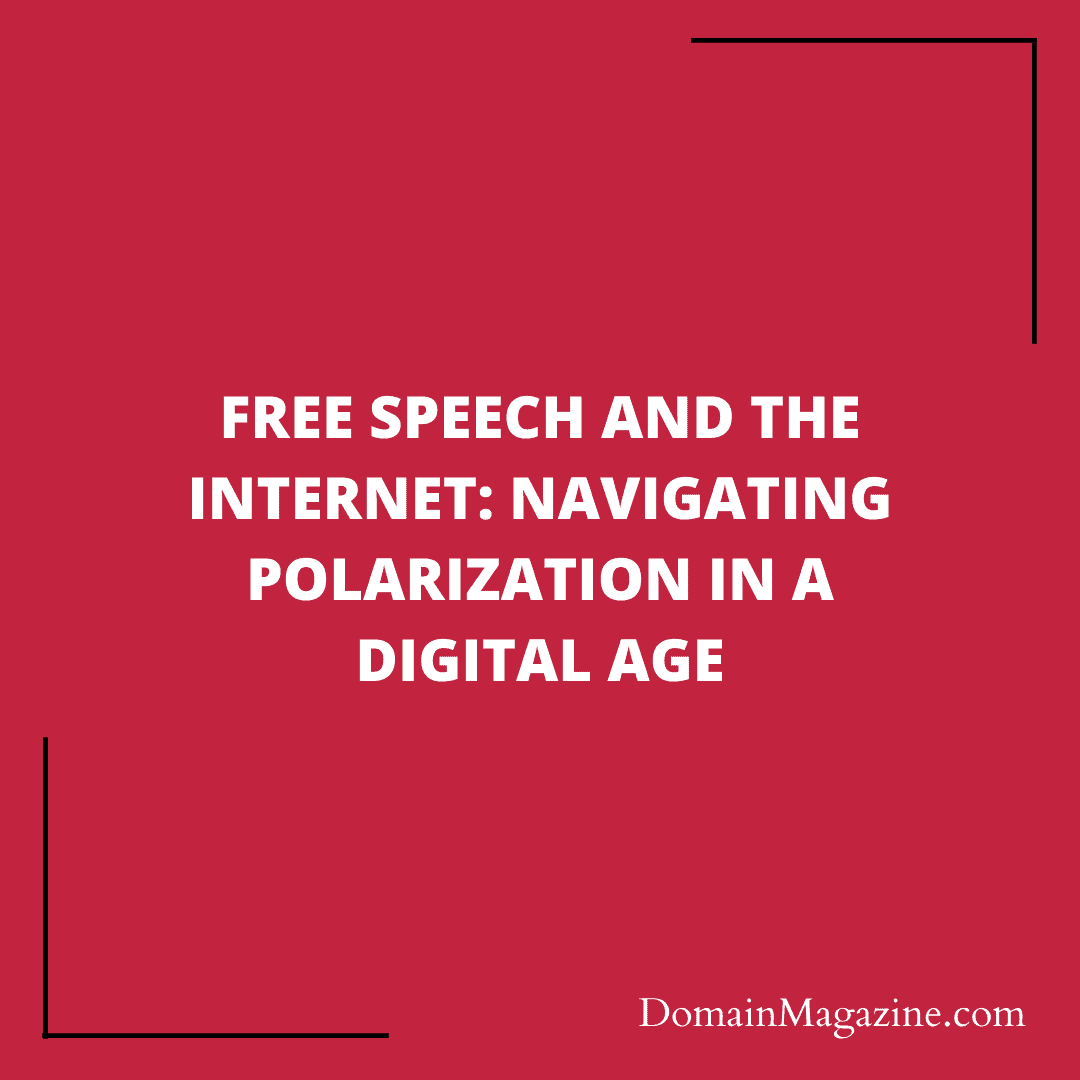In a world marked by deepening divisions and polarized opinions, the role of the internet in upholding free speech has never been more crucial. Recent events and trends, such as the Brexit referendum, the rise of populism, the COVID-19 pandemic, conflicts like the one in Ukraine, and debates on the climate crisis, have underscored the challenges of navigating a world where opposing viewpoints often clash. In this article, we will explore how the internet responds to these challenges and strives to maintain a delicate balance between free expression and the need to address harmful content and polarization.

The Internet as a Platform for Free Speech
Before delving into the internet’s role in addressing polarization, it’s important to acknowledge the significance of this digital realm. The internet has long been hailed as a bastion of free expression, allowing individuals to voice their opinions, engage in dialogue, and challenge prevailing narratives. It has enabled marginalized groups to have a voice and serves as a platform for citizen journalism.
However, it is important to recognize that the internet is a double-edged sword. While it offers unprecedented opportunities for free speech, it has also given rise to echo chambers, the rapid spread of extremist views, and the dissemination of false information.
Balancing Act: How the Internet Responds to Polarization
So, how does the internet navigate the complexities of increasing polarization? Let’s explore four key reasons:
Uniqueness of the Internet: One common argument against preserving free speech on the internet challenges the notion of an inherent right to online expression. The internet’s architecture, unlike traditional media, allows for the potential of complete exclusion. Crucial resources like domain names, IP addresses, and networks fall under the jurisdiction of a select few private entities, including regional internet registries, ISPs, and ICANN. If any of these entities withhold these resources from a website hosting lawful but controversial content, it could effectively silence that voice.
This is in stark contrast to traditional media, where no single entity can deny access to all radio or TV stations, and individuals can establish their newspapers. The crux of the distinction lies in the internet’s architecture, which permits exclusion in a manner not possible in other forms of media. Today, being disconnected from the internet is tantamount to societal exclusion, as it has evolved into a central arena for public discourse.
Cultivating Intellectual Openness: Embracing the right to basic internet expression is rooted in fostering intellectual openness. It acknowledges the inherent uncertainty surrounding an idea’s absolute merit, particularly within the context of online discussions. While some advocate for the “marketplace of ideas,” wherein the most exceptional concepts naturally rise to prominence, the feasibility of this concept in the online landscape is a subject of debate. The ease with which demagogues and extremists can amass significant online followings has cast doubt on the effectiveness of this marketplace.
Nevertheless, this stance does not imply unwavering support for unbridled free speech or an equal distribution of promotional tools. Instead, it promotes the idea of marginalization over outright exclusion. Historically, marginalized groups in the offline world have discovered their voice and gradually influenced broader discourse. The internet should provide a parallel opportunity for ideas to flourish and, if they prove their worth, garner acceptance.
Protection from Undesirable Content: Concerns often arise about the dissemination of harmful ideas on the internet. Yet, the internet’s structure permits marginalization and filtration. Social media platforms can prohibit discussions on specific subjects, search engines can exclude disreputable sites from their indexes, and websites can choose to link exclusively to content that aligns with their values. This mechanism counterbalances the persistence of harmful concepts online.
Unlike forced carriage laws that might compel users to confront objectionable content, internet users are not obligated to visit websites they wish to avoid. This empowers individuals to curate their online experience, shielding them from offensive content.
Avoiding Extreme Measures: The most contentious aspect of this debate revolves around whether the most objectionable viewpoints should have a presence on the internet. While some argue for their exclusion, historical precedent suggests that censorship systems developed for one purpose may be exploited for other potentially harmful objectives.
The analogy here draws from nuclear disarmament. When discussing viewpoint foreclosure, we essentially debate a “nuclear option” for eradicating a viewpoint from the internet entirely. The apprehension lies in the possibility that today’s widely accepted beliefs, such as equality and tolerance, could become tomorrow’s heresies and face expulsion from the internet.
The internet’s pivotal role in an era marked by increasing polarization is a complex and multifaceted one. It serves as both a battleground for divergent ideas and a platform for free expression. Striking the delicate balance between these two aspects necessitates collective responsibility and thoughtful consideration.
Upholding the fundamental principles of free speech while fostering an environment of respect and understanding in the digital realm is of paramount importance. As we navigate this ever-evolving landscape, it becomes evident that the internet can be a beacon of unity in a polarized world. By valuing diverse perspectives and embracing the power of intellectual openness, we can ensure that the internet remains a space where ideas can thrive, evolve, and contribute positively to our global discourse.


Join the Discussion